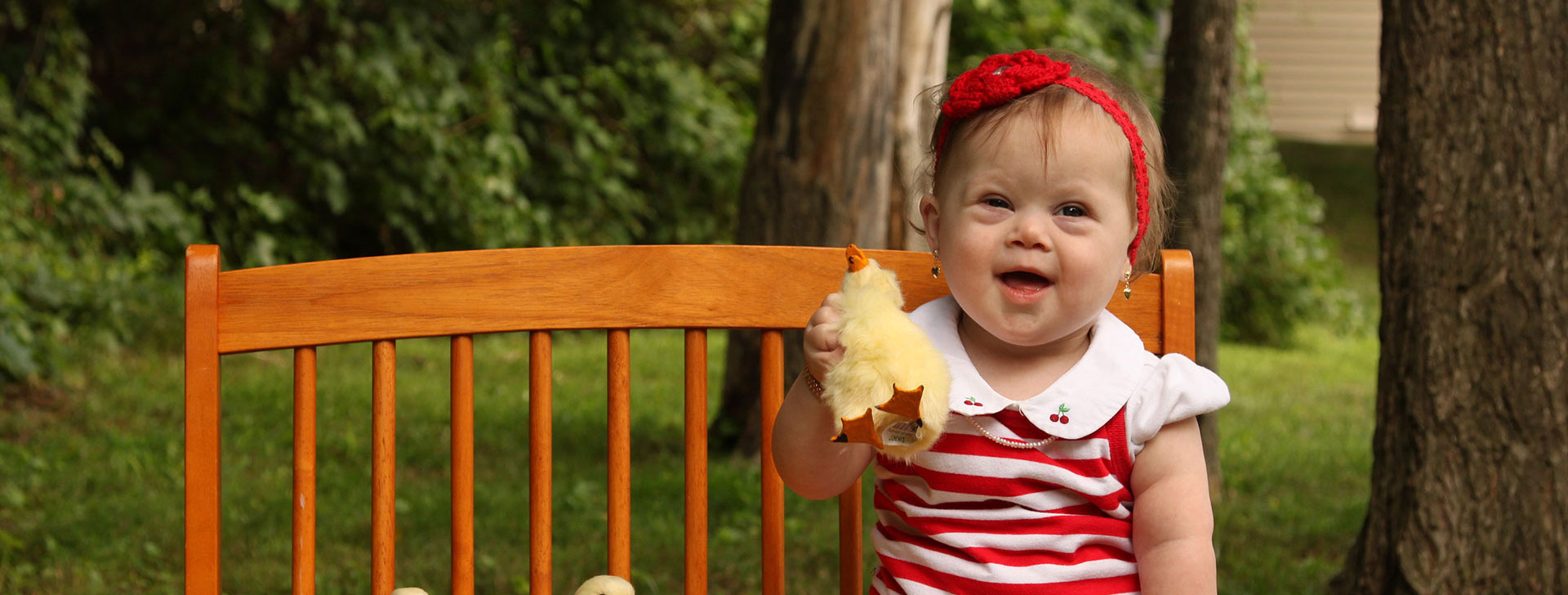Sarah Sander
Disclaimer: I have the highest respect for doctors, but over the course of my special needs parenting I have encountered doctors who didn’t see the patient, didn’t read symptoms; they only saw Down syndrome. Granted, certain symptoms and ailments do occur more frequently within the Down syndrome population, but each patient deserves to be seen as a person first and foremost and the Down syndrome is secondary.
Moishey’s birthweight was only five and a half pounds, and much like his siblings before and after him (there we go again – even though babies with DS will frequently have failure to thrive, Moishey’s pattern of weight gain and growth was replicating his non-DS sibs) he gained weight very slowly, averaging a quarter pound a week. By the time he was three months old, he weighed only eight pounds and had a huge cold.
Many sleepless nights and doctors’ visits later we were thrilled to be filling a prescription for a decongestant for him. That poor tiny little nose would finally be getting some relief.
The Rondec worked like a charm and Moishey’s stuffy nose and congested chest were slowly healing.
On Thursday of that week I suddenly noticed some interesting movements in Moishey’s body, which I couldn’t identify. His limbs would flail, his eyelids would flutter, then his eyes rolled. As a fairly young mother and very new to this Down syndrome business, I thought this was some new ‘Down syndrome behavior’. Until my cleaning lady, who was vacuuming the floors very close to Moishey’s infant seat, pointed out to me that he wasn’t responding to the noise of the vacuum cleaner; he appeared to have lost his hearing.
I watched the vacuuming scenario for several minutes, acknowledged her observations, and was on the phone with Hatzolah within moments. We were rushed to the emergency room, got minimal care and were told to see a neurologist ASAP.
We returned home and started making phone calls and doing research, in our quest to get to the best doctor possible. It was Friday, erev Chanukah and December 24th. Getting an emergency appointment to a pediatric neurologist turned out to be tougher than we had expected, given that not only were we celebrating Chanukah that night, but the doctors we wanted to see were celebrating their own holiday that eve.
We finally were ‘squeezed in’ to a top doctor and with a large box of chocolate in tow, we headed to his Manhattan office. We described Moishey’s body spasms and apparent loss of hearing. The doctor confirmed that they were indeed seizures. He then told us that ‘these kids’ typically have a higher instance of infantile seizures and he will be putting Moishey on a 6-month regiment of anti-seizure meds. As Moishey would grow bigger, the doses of his medication would have to be increased.
We were not happy campers. Having called Moishey’s therapists before we visited the doctor to cancel their sessions with him on Friday, they all expressed their sympathies and hopes that Moishey would not have to be placed on long-term meds, because they interfered with the child’s development. To hinder the development of an infant with Down syndrome is not desirable, to say the least.
Here we were, standing with a prescription in our hands, an antsy doctor who wanted to run home and start his holiday weekend facing us, and the office exit door beckoning. We thanked the doctor, started to leave and then, as if malochim (angels) had stopped me in my tracks and opened my mouth to speak, I blurted out, “Doctor, what if it’s the Rondec decongestant that caused the seizures? If we’ll start Moishey on the anti-seizure meds we will never know the truth. Can we hold off with these meds and wait a few days? Of course, we will stop the Rondec immediately. Can the seizures damage him permanently if he continues having them over the weekend while we go through this trial period?” The good doctor looked at me and poo-poohed my Rondec theory; he then said, “You can definitely wait a few days until you start giving him the seizure meds; nothing will happen.”
We took Moishey home.
We stopped the Rondec.
He never had another seizure again.
My pharmacist explained to me that decongestants have brain stimulants. Because Moishey was so tiny and weighed only eight pounds at the time, the Rondec was way too strong for him.
I have learned that when ‘these kids’ have anything out of the ordinary occurring, I would like ‘them’ to be evaluated just the same way their typical counterparts are.

